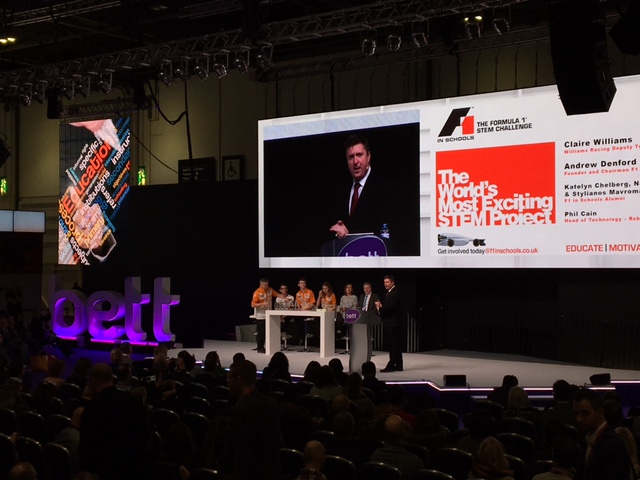Due to its nature, Formula One has always been a heavily technologically-dependent sport, but the last few years has seen F1 take things to a whole new level when it comes to the use of technology.
F1 teams now rely on technology more than ever before for a whole range of functions, both on race days and outside of the competitive environment, looking for any means possible to get millisecond advantages over the competition.
Mercedes, for example, recently teamed up with Qualcomm to improve the collection, analysis and transfer of the 50GB of data that is generated during an hour of running an F1 car.
Williams is also a strong user of cutting edge technologies, incorporating biometric analysis into its pit stops to make them as fast as possible and using Symantec’s endpoint security to protect its confidential data.
F1 in Schools
The dependence on technology and the ultra-competitive environment means that Formula One teams are constantly on the hunt for the brightest engineers of the future and an exciting initiative, showcased at education technology expo Bett 2017, is helping them do exactly that.
F1 in Schools describes itself as “the world’s most exciting STEM project”, with the aim of creating a fun environment in which children aged nine to nineteen can learn about careers in engineering, Formula One, science, marketing and technology.
It all stemmed from “the need to make teaching STEM subject more interesting” said its founder and chairman Andrew Denford, as well as a much talked-about skills gap.
“The world needs engineers and if you’re going to attract engineers you need to start at the pinnacle of high performance engineering, and that’s Formula One,” he added.
It is a global initiative, currently running in 26,000 schools across 45 countries, where teams of six compete to design, construct and race a scaled down version of a Formula One car. They are also required to create a business plan and attract sponsorship, with the ultimate prize being a place at the world finals to compete for the Bernie Ecclestone World Champions trophy.
Williams’ racing deputy team principal Claire WIlliams joined Denford on stage today to talk about the importance of the programme: “Our whole industry is predicated on great engineers coming through. If we don’t encourage and inspire children to take STEM subjects we’re not going to have an industry in the future.”
Gender divide?
She also touched on the need to get more girls interested in STEM subjects and how F1 isn’t as male dominated as most people think: “The landscape is certainly changing in motorsport as a whole. We’re seeing more and more women apply for the engineering-type roles.
“Traditionally at Williams the females that we had working for us would very much be in the administrative or the commercial marketing functions and we’ve seen a real shift over the last five years in how many females we have working across all the engineering disciplines, whether that be aerodynamics, or software engineering, or in a design office, or even trackside on the pit wall and that’s fantastic to see.”
However, she was quick to point out that more needs to be done: “I think at the moment, out of our 300 engineers only five per cent are women and that’s something that we really need to change in Formula one if we’re going to keep this industry alive.”
Closing the gap
Whatever anyone says about the skills gap, the technology sector can’t be accused of shirking its responsibilities, as the number of initiatives focused on the education of young people and the promotion of STEM subjects is ever-growing.
Schools and colleges now have access to more education technology than ever before and, by encouraging the adoption of such innovations, the next generation of workers will be well equipped for today’s digital world.
Quiz: Sport and technology in 2016





